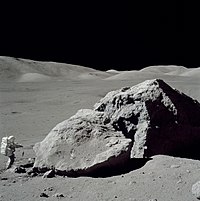Planetary geology

Planets are big round balls floating around in space. Just like on Earth, the surface of these planets is not the same everywhere. There are mountains, valleys, craters, and all sorts of interesting things to look at. Planetary geology is the study of these different features and what they can tell us about the planet.
Planetary geologists use telescopes and robots to look at the surfaces of these planets up close. They collect data and analyze it to learn about the materials that make up the planet and how they got there. They also study how the planet's surface changes over time due to things like erosion from wind and water, volcanic eruptions, and impacts from space debris.
By studying planetary geology, scientists can learn more about the history of our solar system and how it has evolved over billions of years. They can also look for evidence that there may be life on other planets.
Overall, planetary geology is all about exploring and understanding the surfaces of other worlds in our solar system, and using that knowledge to learn more about how our universe works!
Planetary geologists use telescopes and robots to look at the surfaces of these planets up close. They collect data and analyze it to learn about the materials that make up the planet and how they got there. They also study how the planet's surface changes over time due to things like erosion from wind and water, volcanic eruptions, and impacts from space debris.
By studying planetary geology, scientists can learn more about the history of our solar system and how it has evolved over billions of years. They can also look for evidence that there may be life on other planets.
Overall, planetary geology is all about exploring and understanding the surfaces of other worlds in our solar system, and using that knowledge to learn more about how our universe works!
Related topics others have asked about:
